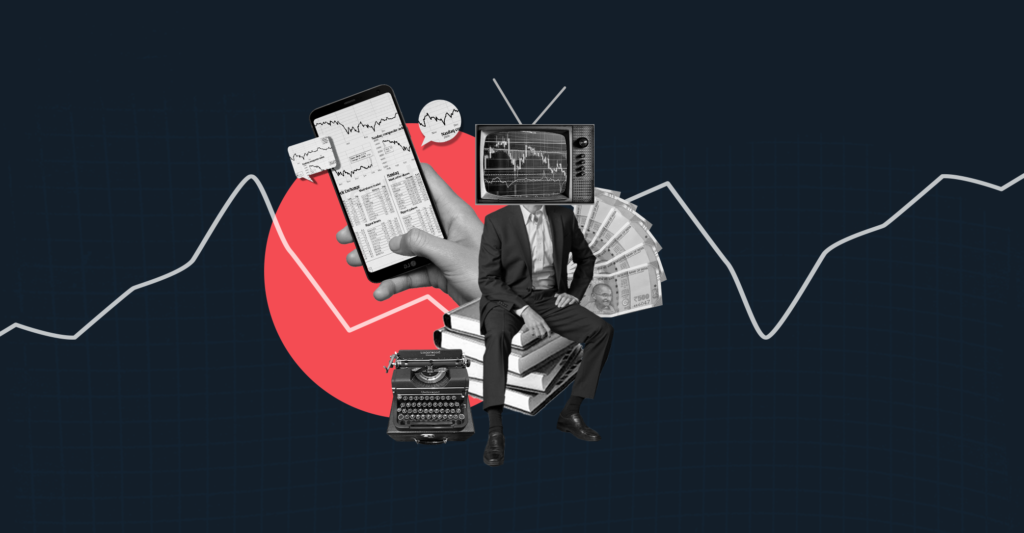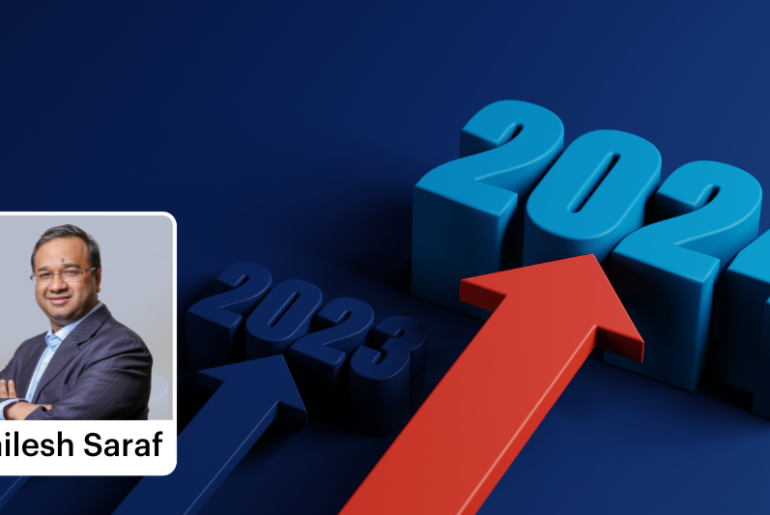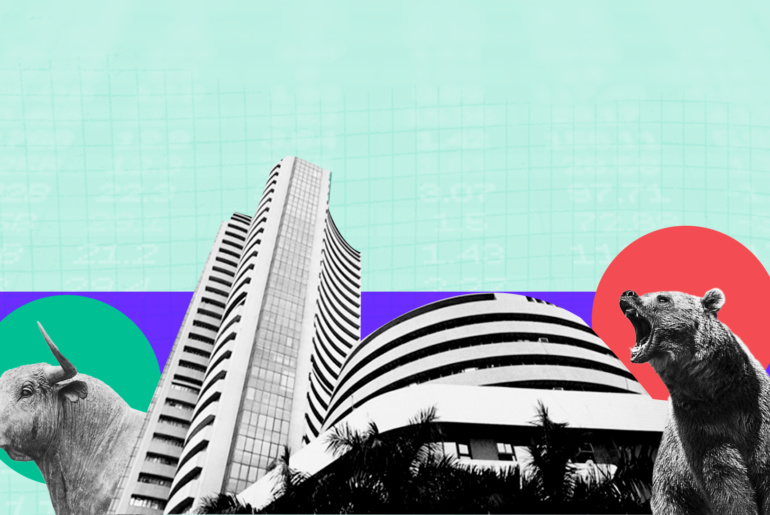Last Updated on May 24, 2022 by Aradhana Gotur
The word commodity is often used interchangeably for goods and raw materials. Indian traders have traditionally enjoyed a rich history of more than 100 yrs in physical commodity trading. But in 2003, commodity markets found legitimacy not only on the ground but on digital exchanges as well. This article delves into commodity meaning and will take you across what has changed in the commodity markets, how they function, and what role they play in building an economy.
Table of Contents
An overview of commodities
A financial market refers to a platform that offers to trade in securities, derivatives, and commodities. Commodity in commerce and finance refers to goods that can be interchanged with the same or similar type of goods. Some commodities exhibit similar qualities irrespective of their origin anywhere globally, such as crude oil, grain, wheat, and other primary products. This makes them great avenues for investment, which is what led to the establishment of a commodities market where traders can discover prices internationally and exchange commodities electronically. Investors can now buy these in the spot market as well as in the derivatives market with futures & options.
Categorization of commodities
In order to trade and use the commodities, buyers and traders must be aware of multiple types of commodities that can be traded, especially on different exchanges.
Multi Commodity exchange
Bullion, Petrochemical, pulses, cereals, spices, energy, fibre, metals, plantation, and so on.
Indian commodity exchange
Metals: gold, silver, iron, copper, lead, etc.
Naturals: crude oil, natural gas, etc
Agriculture products: Mustard, soya bean, jute, etc.
National commodity and derivative exchange
Metals: Gold, silver, copper, steel, etc.
Agriculture: Spices, fibre, pulses, oil, and oilseed, etc.
Naturals: Crude and brent oils.
National multi-commodity exchange
Agriculture: Seeds, black pepper, gram, rapeseed, coffee, rubber, etc.
Metals: Gold, aluminium, copper, zinc, lead, etc.
The above classification depicts the various category of commodities available to the traders and buyers. It is important for the buyers and producers to make sure that their purchased commodity is as per international standards and norms established for that particular category of commodities.
Importance of commodities in the economy
Commodities such as metals, minerals and agricultural goods, which are essential raw materials for many other industries, play an important part in the development of the economy. The demand for these commodities is generally high and therefore is found to be often traded on the commodity exchange.
Commodities such as crude oil, natural gas, gold, platinum, and other precious metals and minerals contribute through their value, being limited resources, and therefore, serve as investment avenues.
The following points indicate the importance of precious commodities in the development of the economy:
- The availability of crude oil in a country generates a source of foreign exchange.
- Precious metals like gold increase the reserve base of a country as the capital reserve are created with gold value as well.
- Metals, precious natural products, and agricultural goods are the primary source of foreign inflows that contribute to growth in GDP.
Buying and selling of commodities
Products and commodities can be bought and sold in the consumption market. In order to trade, these commodities are usually exchanged over the commodity exchanges through derivatives.
A prominent way to trade goods like crude oil, gold, silver, and metals are through future, forward, and options in the derivative markets. Traders and buyers make use of derivatives to enter into a contract to buy or sell the underlying commodity on or before a pre-decided time at a pre-decided price.
Traders who buy and sell commodities in bulk in the physical market usually engage with forwards and futures to hedge against the price change. With the application of multiple forecasting models, traders anticipate future prices and then make decisions about buying and trading goods and commodities.
How can commodities trade be done in the market?
Commercial trading comprises physical trading as well as buying/selling with future contracts. In India, 22 commodity exchanges have been established under the provisions of commodity markets commissions that offer trading for around 120 commodities.
With futures in the derivatives market, you can enter into a contract with a producer to buy that particular commodity at a certain price on a fixed date. If the price of that commodity increases after three months, you can use a futures contract to hedge against the price rise.
For instance, assume parties Mr A (Buyer) and Mr B (Seller) promise to exchange 100 gm of gold three months from today for a current rate of Rs 4000 per gram. Mr A expects the price to rise whereas Mr B expects the complete opposite. The contract, as per value, stands at Rs 4,00,000. Now, if three months later, the price per gram increases to Rs 4500, Mr B is obligated to sell at the predetermined Rs 4000. This is how buyers and producers use contracts and price fluctuations to hedge, as well as earn profits.
Prominent commodity exchanges in India
In India, there are 19 commodity exchanges that permit trading with commodities. The most popular among them are listed below:
Multi Commodity Exchange
Multi Commodity Exchange is the largest commodity exchange in the world for gold and silver, that was set up in 2003. It offers trading services in over 40 countries and facilitates trading across multiple commodities.
Indian Commodity Exchange
Indian Commodity Exchange or ICEX was established in 2009 as a screen-based commodity trading platform in India.
National Commodity and Derivative Exchange
This commodity exchange provides trading facilities for various products. It was incorporated in 2003 in Mumbai. The exchange provides services in commodities like agriculture products, metals, minerals, etc.
National Multi-Commodity Exchange
NMCX was launched in 2002 as the first online demutualized commodity exchange. NMCX was merged with ICEX in 2017.
Things to know before trading in commodities
In commercial buying and selling, traders can buy the commodities as an investing unit. But before trading or investing in commodities, a trader needs to know various concepts related to commodities as well as trading.
Requirements to trade with commodities
For trading in commodity options and derivatives, a trader needs to open a margin account that must be registered with a commodity exchange. Future trading involves two types of margins:
- Initial margins
- Maintenance margin
Traders deposit the initial margin before executing the actual trade. The amount is determined on the value of total trade value. With the fluctuation in commodity price, margin price also fluctuates. If this margin falls below the maintenance margin, traders must deposit an amount of call margin up to a level of maintenance margin money.
Knowledge about market cycles and risk appetite
Commodity trading is a little more complex than stock trading. The risk is also higher if not equal. In commodity trading, the investor or trader enters into a deal with the buyer or seller on the current date to perform the transaction in the future but at a predetermined price. In stocks, you have the option to hold on for further in hopes of a revival in price, should the stock be on a downslide. There is no commitment to transact. That is where the additional risk in commodities trading comes from. It requires traders to be on the watch and understand the market, as well as factors that influence commodity prices before entering into contracts.
Commodity trading hours
For commodities like gram, maize, gold, silver, oil, gas, etc., the trader can trade from 10:00 AM to 11:30 PM on the commodity exchanges.
Tax and duties involved in commodity trading
Trading in commodities involves various taxes and duties like goods and services tax on brokerage for delivery of goods, stamp duty, commodity transaction tax, and others. It is essential for traders and producers to be aware of all taxation formalities.
Commodities form a vital part of any economy. Earlier, their exchange was arranged through the barter system, but today, world-class technology and multiple commodity exchanges have made this system of exchange lucrative and more reliable. Whether it is metals, oil or agricultural produce, all can be traded on markets and through derivatives that not only provide robust risk management but also a means to earn good profits.







